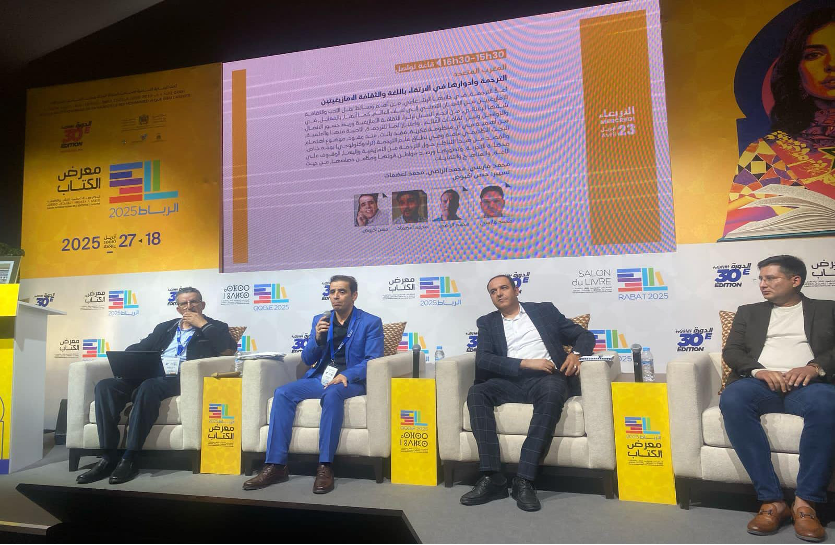
Panelists Highlight the Role of Literary and Institutional Translation at the Rabat International Book and Publishing Fair

Panelists Highlight the Role of Literary and Institutional Translation at the Rabat International Book and Publishing Fair

Panelists Highlight the Role of Literary and Institutional Translation at the Rabat International Book and Publishing Fair
As part of the activities at the Rabat International Book and Publishing Fair, a thought-provoking panel discussion was held on the topic of “Translation and Its Role in Elevating the Amazigh Language and Culture.” The event brought together experts and academics in the field of translation, particularly those involved in Amazigh linguistic and cultural development.
In his take, Mohamed Erraadi, a retired professor and Amazigh language translator, focused on the theme: “Literary Translation into Amazigh: Liberation of the Tongue or Hospitality Toward the Foreign?” He divided his presentation into two main parts. In the first, he examined the status, evolution, and challenges facing the Amazigh language, especially regarding the development of a standardized form. In the second part, he explored the role of the Royal Institute of Amazigh Culture (IRCAM) as a guardian and sponsor of translation efforts. Erraadi concluded by proposing foundational principles for a methodology of translation into Amazigh, rooted in both linguistic integrity and cultural representation.
Mohamed Laadimat, a university professor at the King Fahd School of Translation in Tangier, spoke about the roles of translation from and into Amazigh. He emphasized how translation contributes to the advancement of Amazigh by reinforcing its official status, enhancing its lexical resources, and expanding access to information in the language. Laadimat welcomed the growing institutional efforts to empower Amazigh speakers, emphasizing how these initiatives not only affirm linguistic rights but also celebrate and preserve a rich cultural heritage. He expressed appreciation for the progress made in making knowledge and communication more accessible in the Amazigh language, viewing it as a meaningful step toward inclusivity and cultural pride.
The question “Why do we translate into Amazigh?” opened a thoughtful reflection on the role of literary translation in preserving and elevating the language. Drawing from literature as a case study, researcher Mohamed Farsi explored the complex challenges involved—particularly those related to the standardized form of Amazigh, which carries significant national importance. For Farsi, “translation is not merely a linguistic conversion, but a hermeneutic practice that requires awareness of the limits and potential of language”.
This insightful session underscored how translation is more than a linguistic exercise, it is a cultural and political act. By promoting the use of Amazigh in literature, education, and official communication, translation becomes a key driver in the recognition, preservation, and elevation of a language deeply rooted in Moroccan identity.
